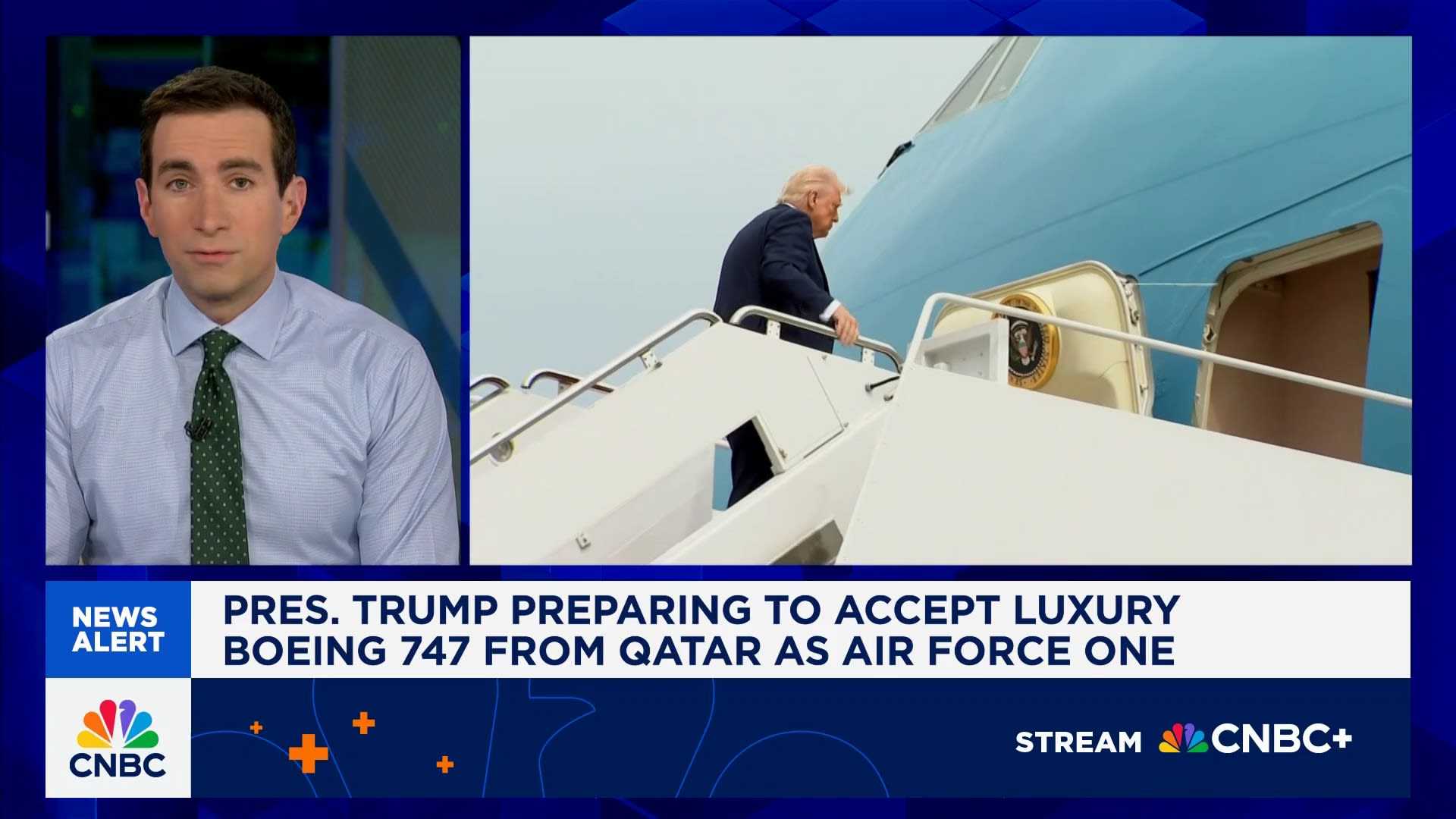Politics
Trump’s Foreign Gifts Raise Ethical Concerns Amid Scrutiny

WASHINGTON, D.C. — President Donald Trump is facing backlash after reportedly considering a proposal from Qatar to provide a luxury Boeing 747-8 as a new Air Force One. The offer has raised significant ethical questions about foreign influence and the potential conflicts of interest surrounding Trump’s business dealings.
On Sunday, Trump confirmed that his administration is looking into the possibility of accepting the aircraft as part of ongoing discussions regarding cost overruns with the current Air Force One replacement program. Senator Jack Reed, the top Democrat on the Senate Armed Services Committee, stated that such a move could bring “immense counterintelligence risks” to the United States.
The situation is further complicated by the Emoluments Clause of the Constitution, which prohibits public officials from accepting gifts from foreign governments without congressional approval. Critics argue that accepting the aircraft could signify a troubling acceptance of foreign donations and influence.
Moreover, this controversy comes alongside a broader scrutiny of Trump’s financial activities, particularly involving cryptocurrency. Recently, an auction was held for a White House tour linked to a Trump-branded cryptocurrency coin, igniting conversations about the ethics of political fundraising and possible foreign ties.
Trump’s Attorney General, Pam Bondi, has been noted for executing White House directives with minimal objection, raising additional concerns about the independence of the Justice Department under Trump’s administration.
As Trump gears up for an extended foreign trip this week, including stops in Saudi Arabia, the United Arab Emirates, and Qatar, he is expected to prioritize trade and financial investments, further entrenching the ties with these nations.
Despite the backlash, Trump defended his acceptance of the offer, claiming only “stupid” people would reject such gifts. The ongoing tension highlights potential rifts within the Republican Party, particularly as lawmakers weigh the implications of foreign gifts on U.S. politics.












